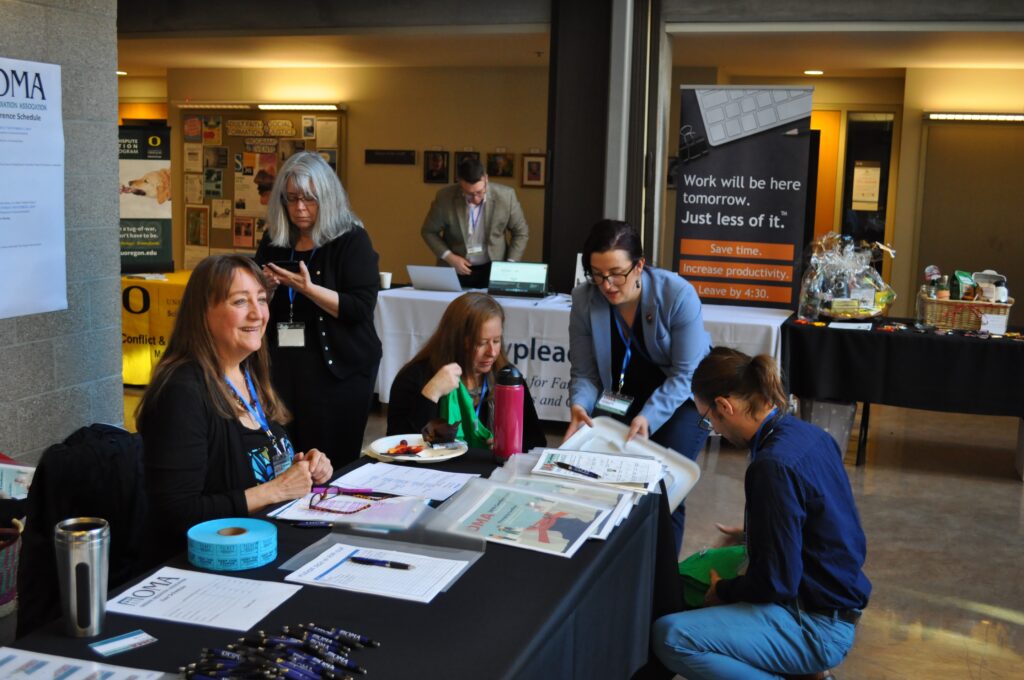
Increased fees for court-connected settlement conferences take effect October 1, 2019. The slight fee increase for this alternative dispute resolution service is part of the new Circuit Court Fee Schedule containing multiple fee changes. These changes are a result of House Bill 3447.
The new fee for a domestic relations settlement conference now sits at $111 per party for settlement conferences before a judge when the proceeding is subject to a fee under ORS 21.155. The fee was previously $105 per party, based on the Circuit Court fee schedule, effective January 1, 2018. Prior to 2018, the fee for domestic relations settlement conferences was $100 per party.
For other settlement conferences before a judge when the proceeding is a civil proceeding not subject to a filing fee under ORS 21.155, the fee is now increased to $223 for each party. This settlement conference fee is an increase from the previous $210, which took effect January 1, 2018, and the previous $200, which was effective January 1, ORS 21.215 governs the state’s court-connected settlement conference fees.
The current Circuit Court Fee Schedule is available on the OJD website at https://www.courts.oregon.gov/Pages/fees.aspx. Remember that the cost of court fees, settlement conferences, mediation services, and attorney fees, are all issues that can be negotiated in nearly all alternative dispute resolution processes. For questions about court fee waivers or deferral procedures, see your local circuit court’s website or contact the circuit court.



